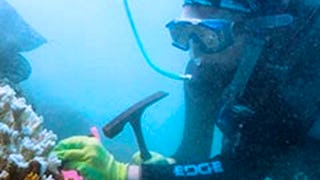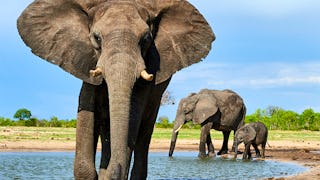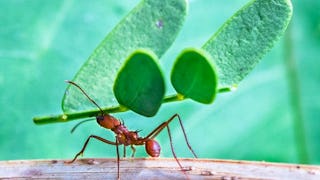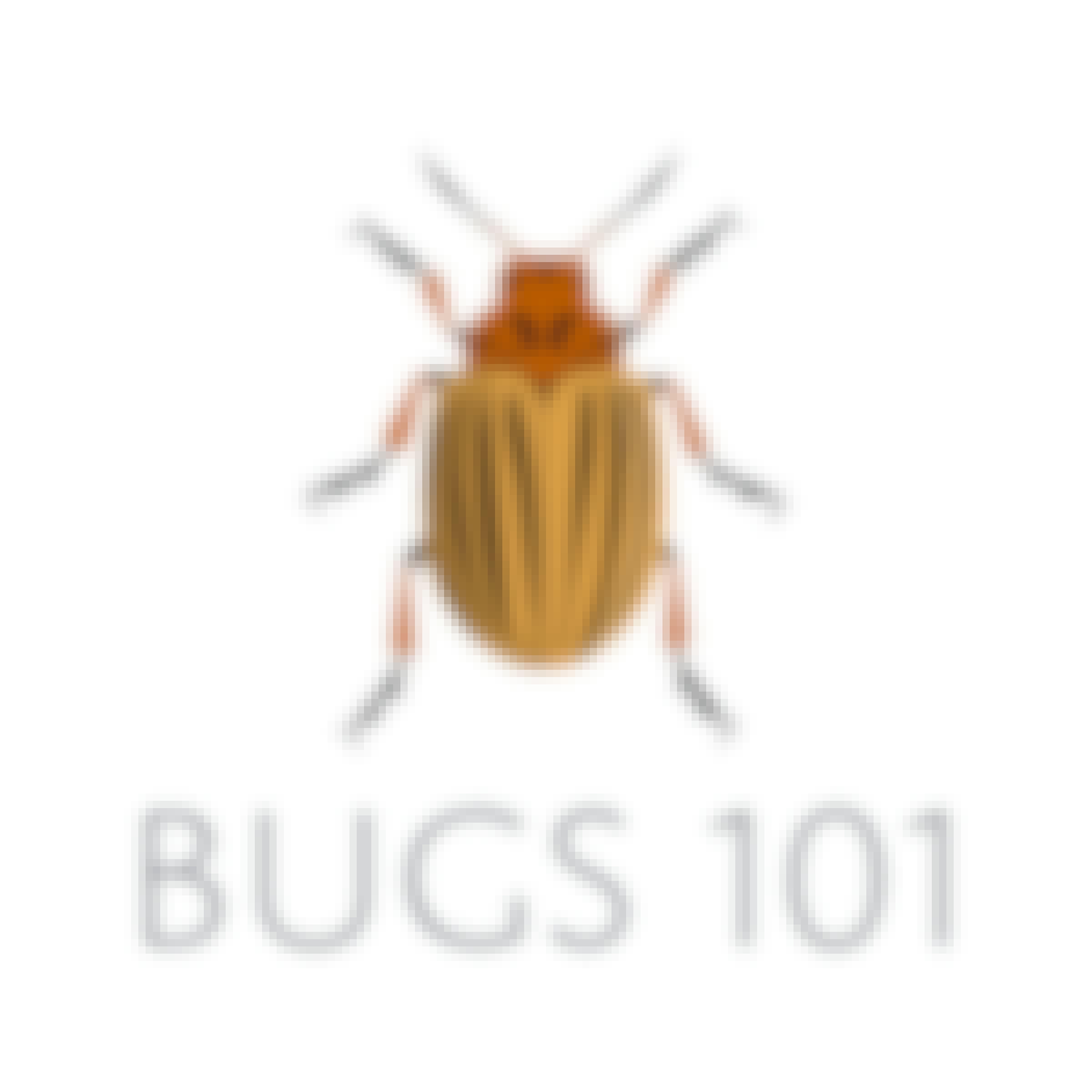- Browse
- Zoology
Zoology Courses
Zoology courses can help you learn animal anatomy, behavior, ecology, and evolutionary biology. You can build skills in species identification, data collection techniques, and ecological modeling. Many courses introduce tools such as field guides, statistical software for analyzing animal populations, and methods for conducting wildlife surveys. These skills and tools enable you to study animal interactions within ecosystems and contribute to conservation efforts.
Popular Zoology Courses and Certifications
 T
TThe University of Edinburgh
Skills you'll gain: Applied Behavior Analysis, Scientific Methods, Safety Assurance, Behavior Management, Stress Management, Empathy & Emotional Intelligence, Ethical Standards And Conduct, Healthcare Ethics, General Science and Research, Environmental Issue, Nutrition and Diet
4.8·Rating, 4.8 out of 5 stars5.4K reviewsMixed · Course · 1 - 3 Months
 Status: PreviewPreviewA
Status: PreviewPreviewAAmerican Museum of Natural History
Skills you'll gain: Life Sciences, Biology, Environmental Science, Environment, Biochemistry, Physiology, Hydrology, Environmental Issue, Anatomy, Water Quality, Behavioral Health, Research
4.8·Rating, 4.8 out of 5 stars594 reviewsBeginner · Course · 1 - 3 Months
 Status: Free TrialFree TrialU
Status: Free TrialFree TrialUUniversity of Michigan
Skills you'll gain: Human Musculoskeletal System, Anatomy, Endocrinology, Pulmonology, Cardiology, Respiration, Hematology, Obstetrics And Gynecology, Orthopedics, Neurology, Nephrology, Kinesiology, Physiology, Urology, Medical Imaging, Sports Medicine, Biology, Medical Terminology, Cell Biology
4.8·Rating, 4.8 out of 5 stars4K reviewsBeginner · Specialization · 3 - 6 Months
 Status: PreviewPreviewA
Status: PreviewPreviewAAmerican Museum of Natural History
Skills you'll gain: Environment, Systems Thinking, Environmental Science, Natural Resource Management, Environmental Resource Management, Biology, Sustainable Development, Environmental Engineering and Restoration, Case Studies, Mathematical Modeling
4.8·Rating, 4.8 out of 5 stars3.4K reviewsIntermediate · Course · 1 - 3 Months
 Status: Free TrialFree TrialR
Status: Free TrialFree TrialRRice University
Skills you'll gain: Biology, Environment, Microbiology, Environmental Science, Life Sciences, Environmental Issue, Sustainable Development, Natural Resource Management, Physiology, Molecular Biology, Taxonomy, Cell Biology, Anatomy, Climate Change Adaptation, Estimation, Scientific Methods, Climate Change Mitigation, Experimentation
4.8·Rating, 4.8 out of 5 stars278 reviewsBeginner · Specialization · 3 - 6 Months
 Status: Free TrialFree TrialU
Status: Free TrialFree TrialUUniversity of Colorado Boulder
Skills you'll gain: Social Studies, Social Sciences, Sociology, Anthropology, Culture, Laboratory Research, Behavioral Health, Healthcare Ethics, Research, Media and Communications, Empathy & Emotional Intelligence, Ethical Standards And Conduct, Health Care, Cultural Diversity, Mental and Behavioral Health, Food and Beverage, Rehabilitation, Biology, Nutrition and Diet, Sports Medicine
4.7·Rating, 4.7 out of 5 stars210 reviewsBeginner · Specialization · 1 - 3 Months
What brings you to Coursera today?
 Status: Free TrialFree TrialU
Status: Free TrialFree TrialUUniversity of Colorado System
Skills you'll gain: Splinting, Patient Evaluation, Trauma Care, Medical Emergency, Sanitation, Emergency Medicine, Neurology, First Aid, Patient Positioning, Patient Transport, Wound Care, Emergency Medical Services, Patient Treatment, Safety Assurance, Clinical Assessment, Environment Health And Safety, Triage, Acute Care, Emergency Response, Vital Signs
4.8·Rating, 4.8 out of 5 stars113 reviewsBeginner · Specialization · 3 - 6 Months
 Status: FreeFreeU
Status: FreeFreeUUniversity of Alberta
Skills you'll gain: Anthropology, Anatomy, Physiology, Life Sciences, Sustainable Development, Environment and Resource Management, Environmental Science, Biology, Cultural Diversity, Microbiology, Public Health and Disease Prevention, Taxonomy, Criminal Investigation and Forensics
4.9·Rating, 4.9 out of 5 stars1.5K reviewsBeginner · Course · 3 - 6 Months
 Status: NewNewStatus: Free TrialFree TrialL
Status: NewNewStatus: Free TrialFree TrialLLecturio
Skills you'll gain: Molecular Biology, Biochemistry, Cell Biology, Pharmacology, Biology
Intermediate · Course · 1 - 4 Weeks
 Status: PreviewPreviewD
Status: PreviewPreviewDDuke University
Skills you'll gain: Molecular Biology, Biology, Biostatistics, Biotechnology, Environmental Science, Scientific Methods, Mathematical Modeling
4.8·Rating, 4.8 out of 5 stars1.9K reviewsMixed · Course · 1 - 3 Months
 Status: NewNewStatus: Free TrialFree TrialL
Status: NewNewStatus: Free TrialFree TrialLLecturio
Skills you'll gain: Microbiology, Infection Control, Infectious Diseases, Hand Hygiene, Bloodborne Pathogens, Public Health and Disease Prevention, Immunology, Biology, Molecular Biology, Cell Biology, Taxonomy
Intermediate · Course · 1 - 3 Months
 Status: FreeFreeU
Status: FreeFreeUUniversity of Alberta
Skills you'll gain: Biology, Physical Science, Life Sciences, Taxonomy, Scientific Methods, Science and Research, Environmental Science, Spatial Data Analysis
4.9·Rating, 4.9 out of 5 stars3.8K reviewsBeginner · Course · 1 - 3 Months
Searches related to zoology
In summary, here are 10 of our most popular zoology courses
- Animal Behaviour and Welfare: The University of Edinburgh
- Marine Biology: American Museum of Natural History
- Anatomy: University of Michigan
- Ecology: Ecosystem Dynamics and Conservation: American Museum of Natural History
- Introduction to Biology: Ecology, Evolution, & Biodiversity: Rice University
- Animals and Society: University of Colorado Boulder
- Wilderness First Aid: University of Colorado System
- Bugs 101: Insect-Human Interactions: University of Alberta
- Molecular and Cell Biology: Lecturio
- Introduction to Genetics and Evolution: Duke University
Frequently Asked Questions about Zoology
Zoology is the scientific study of animals, encompassing their biology, behavior, and interactions with ecosystems. Understanding zoology is crucial as it helps us comprehend biodiversity, animal behavior, and the roles animals play in their environments. This knowledge is vital for conservation efforts, wildlife management, and understanding the impacts of human activities on animal populations.
A degree in zoology can open doors to various career paths. Common job roles include wildlife biologist, conservation officer, zookeeper, and research scientist. Additionally, zoologists may work in education, environmental consulting, or animal behavior research, contributing to our understanding of animal life and its preservation.
To succeed in zoology, you should develop a strong foundation in biology, ecology, and environmental science. Skills in data analysis, research methodologies, and critical thinking are also essential. Practical experience, such as internships or volunteer work with animals, can enhance your understanding and employability in this field.
There are many online courses available to help you learn zoology. Look for programs that cover essential topics such as animal physiology, ecology, and conservation strategies. These courses can provide a solid foundation and help you gain practical skills relevant to the field.
Yes. You can start learning zoology on Coursera for free in two ways:
- Preview the first module of many zoology courses at no cost. This includes video lessons, readings, graded assignments, and Coursera Coach (where available).
- Start a 7-day free trial for Specializations or Coursera Plus. This gives you full access to all course content across eligible programs within the timeframe of your trial.
If you want to keep learning, earn a certificate in zoology, or unlock full course access after the preview or trial, you can upgrade or apply for financial aid.
To learn zoology, start by exploring online courses that fit your interests. Engage with interactive content, participate in discussions, and seek out practical experiences, such as volunteering at local zoos or wildlife organizations. This hands-on approach will deepen your understanding and enhance your skills.
Zoology courses typically cover a range of topics, including animal anatomy, physiology, behavior, ecology, and conservation. You may also study specific animal groups, such as mammals, birds, reptiles, and marine life, providing a comprehensive understanding of the animal kingdom.
For training and upskilling employees in zoology, look for courses that focus on practical applications, such as wildlife management or conservation strategies. These programs can equip professionals with the necessary skills to address real-world challenges in animal care and environmental protection.










